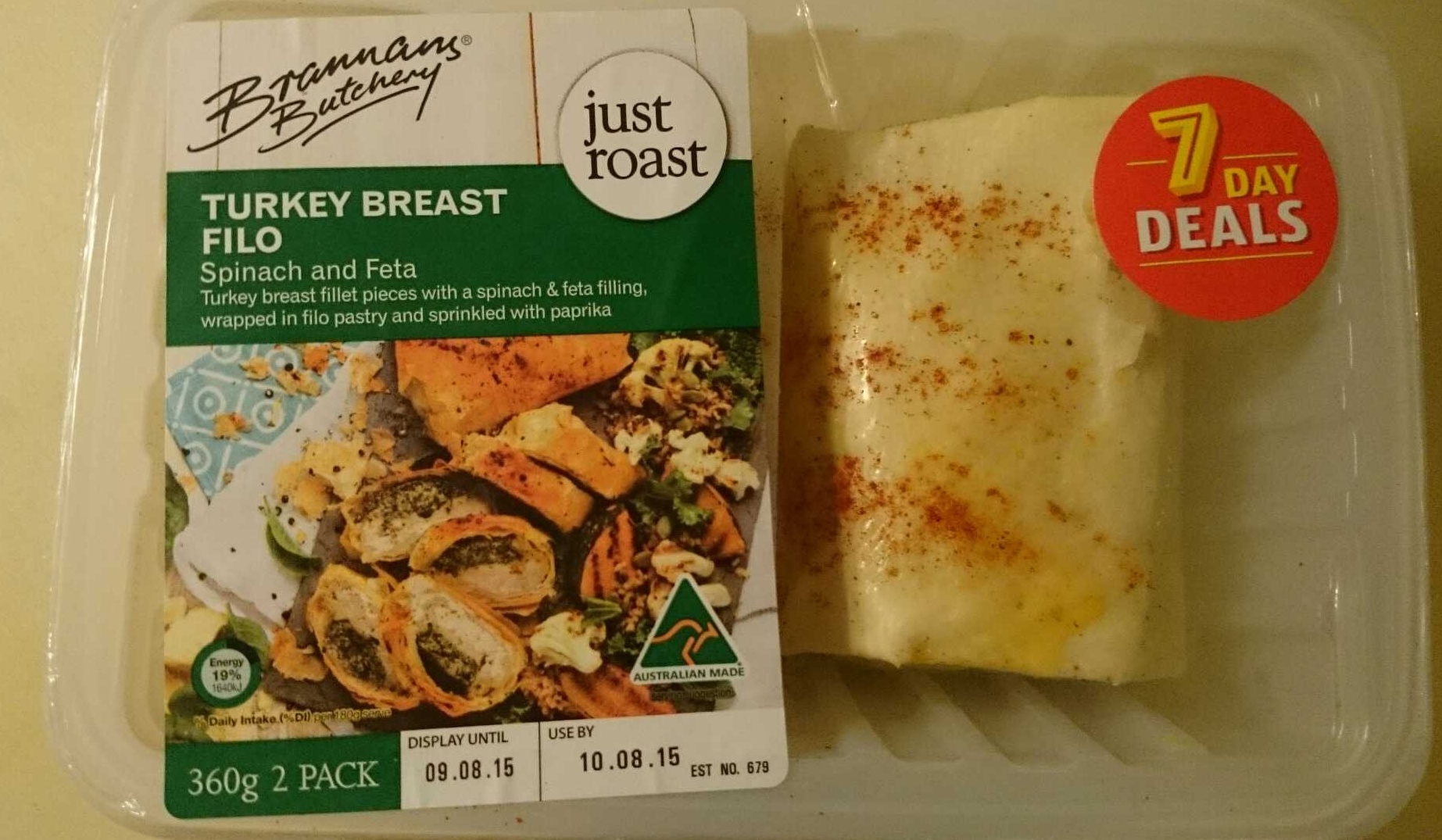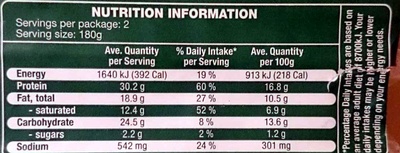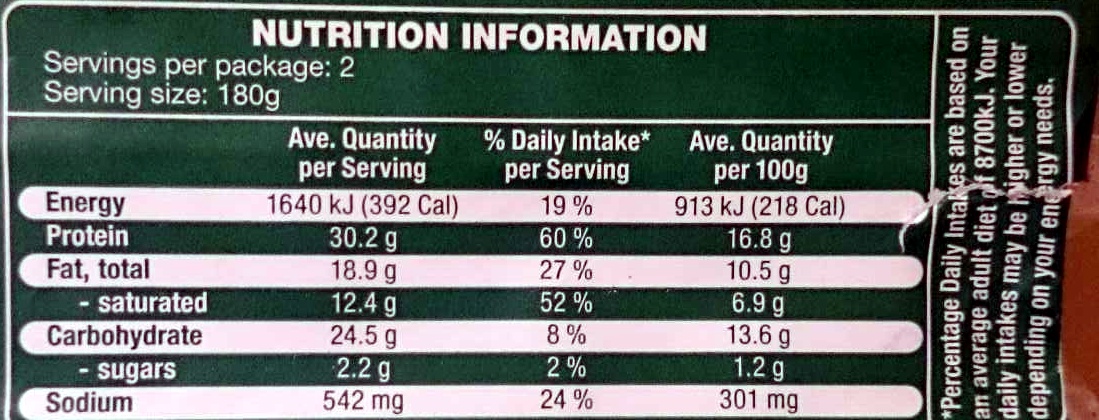Turkey Breast Filo 2 Pack - Brannans Bakery - 360g 2 pack
Ambiguous barcode: This product has a Restricted Circulation Number barcode for products within a company. This means that different producers and stores can use the same barcode for different products.
×
This product page is not complete. You can help to complete it by editing it and adding more data from the photos we have, or by taking more photos using the app for Android or iPhone/iPad. Thank you!
×
Barcode: 26166247
Quantity: 360g 2 pack
Packaging: Plastic
Brands: Brannans Bakery, Aldi
Categories: Meals, Microwave meals
Labels, certifications, awards: Australian made
Origin of ingredients: Australia
Manufacturing or processing places: Australia
Stores: Aldi
Countries where sold: Australia
Matching with your preferences
Environment
Packaging
Transportation
Report a problem
Data sources
Product added on by foodorigins
Last edit of product page on by packbot.
If the data is incomplete or incorrect, you can complete or correct it by editing this page.











